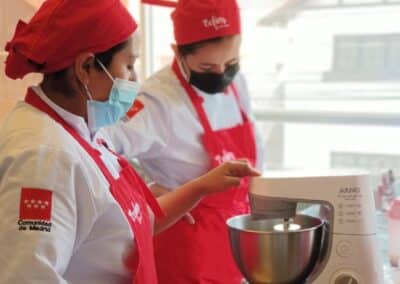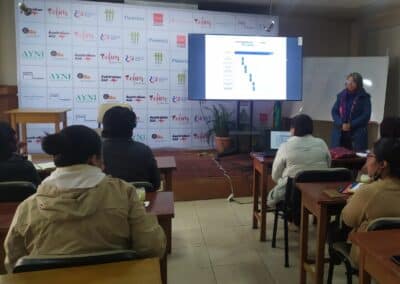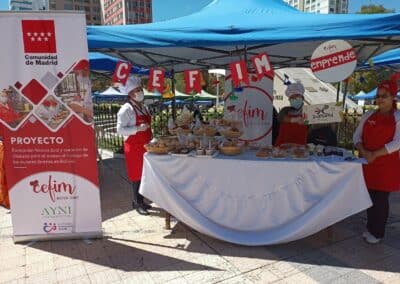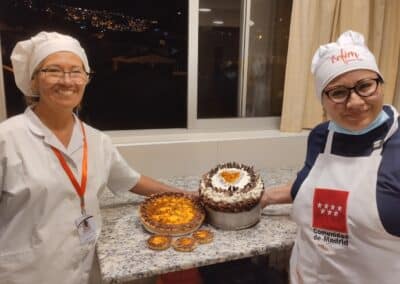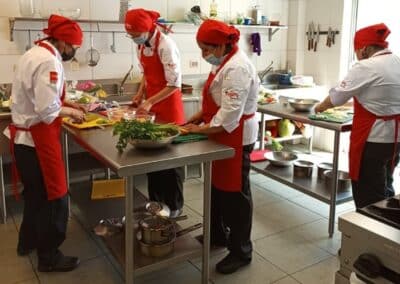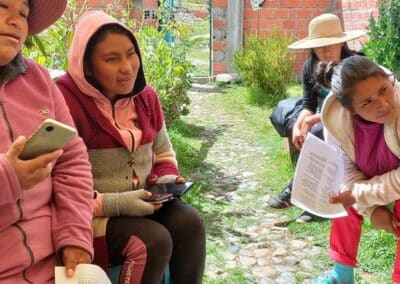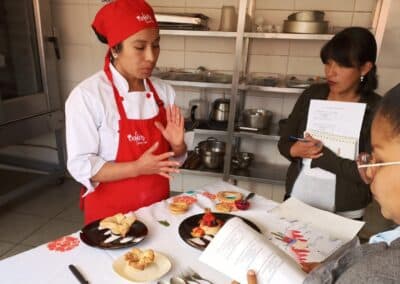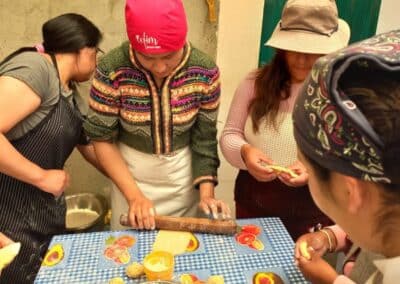Natalia Puñe is studying Gastronomic Services Administration at the CEFIM Technical Institute, a training that will conclude with the internship she is currently developing at La Especiería (a space for practical learning integrated into the CEFIM facilities).
“This time has helped me a lot to grow personally and also to develop my skills,” says this young woman who, once she finishes this internship period, will have new opportunities to access a decent job or to start her own business. in the gastronomy and hospitality sector.
Natalia is one of the students who is completing this training to which she has had access thanks to the Project that we are developing together with our local partner, the CEFIM Technical Institute, and with funding from the Regional Government of Madrid. Its objective is to promote decent employment and entrepreneurship of indigenous Aymara women, through dual technical training and the creation of alliances with companies.
Like Natalia, another 225 Aymara women are training as cooking and hospitality technicians, through this project that tries to ensure their access to employment in conditions of equality and security, overcoming any discriminatory barrier that they may encounter and valuing the intangible cultural heritage that they contribute.
Since this project started, at the beginning of 2023, significant progress has been made in the three work areas in which this initiative is structured: the training of those responsible for training, improving the acquisition of professional skills of the women beneficiaries and establishing alliances with companies.
With respect to the preparation of those responsible for the technical-dual training of these women, work has been done to improve the quality of training aimed at employment and micro-entrepreneurship, with a gender focus and in accordance with the Get-Ahead methodology of the International Labor Organization. Along these lines, company tutors and CEFIM members are receiving training in dual training and support. Likewise, the existing gastronomic training program is being adapted to the dual training methodology.
In relation to improving the acquisition of professional skills by Aymara women, progress is being made in the adaptation of the infrastructures in which they receive this dual training, at the CEFIM and La Especería. In addition, work is being done on the professionalization and standardization of gastronomic skills to offer more sustainable hospitality and culinary services.
Likewise, within the framework of this Project, 40 women are participating in a 3-year program that is allowing them to receive theoretical-practical training in soft skills and gastronomic technical competencies, as well as carry out internal internships in the CEFIM space. La Especería has the permanent support of an academic tutor.
Along these lines, activities are being organized to exchange experiences between students and rural women, in order to promote the empowerment and strengthen the identity of Aymara women, while recovering their ancestral gastronomic knowledge. In addition, a total of 66 women have participated in a theoretical-practical training program on entrepreneurship.
Finally, in order to establish an employment support network through alliances with companies, members of different public-private entities have participated in 5 workshops at the CEFIM on raising awareness of labor and women’s rights. On the other hand, work is being done on the creation of a website that houses a space with employment opportunities for women who are receiving dual training.







